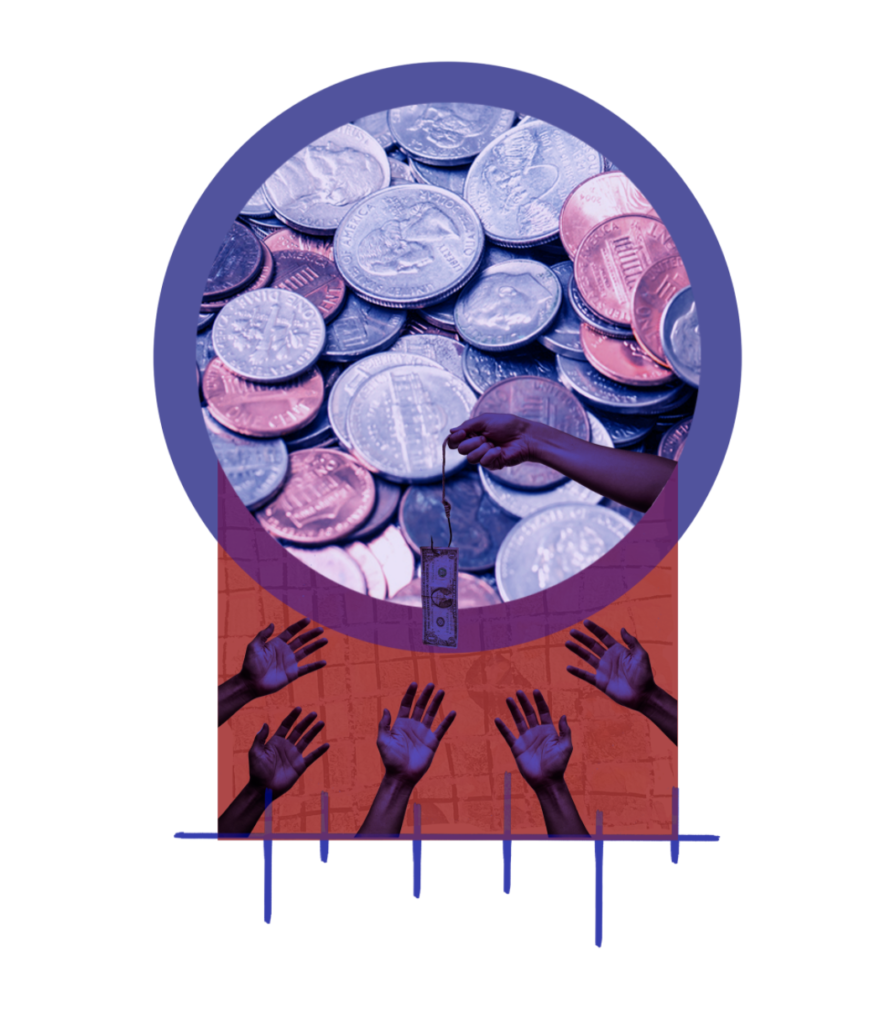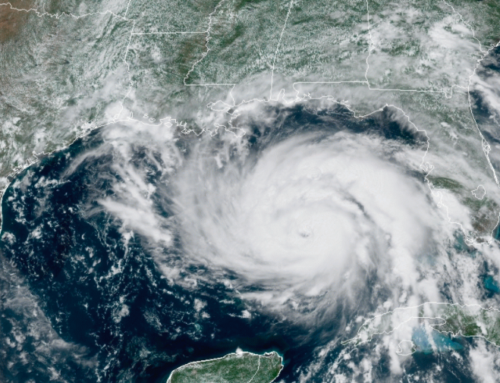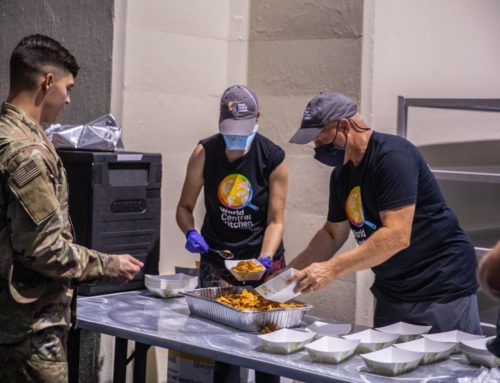Imagine how it feels to be yelling at the top of your lungs, trying to warn others of impending danger that you know is coming and to have others ignore you, then call you stupid or blame you? That’s how many of us in Louisiana feel now more than 15 years removed from Hurricane Katrina.
The tragedy that played out in Texas and the South was another foreseeable, man-made disaster. And it reminds me in a way of the national wake-up call many had after Katrina in 2005 when the federal levees broke. Since then, there have been several other “canary in the coal mine” moments. We’ve seen it with the bridge collapse in Minneapolis. We’ve seen it with the water crisis in Flint and in other communities with a lack of investment in water systems. We’ve seen it after SuperStorm Sandy.
Much of our nation’s public infrastructure, including energy infrastructure, is vulnerable, because we haven’t invested in it. To add insult to injury, in each and every event, these major disasters put the poor and most vulnerable communities at even further risk. And all of it will continue to be exacerbated by the real world impact of climate change. We are simply unprepared for these cascading and intersecting crises. It will continue to snowball until we make major investments focused on solving these overlapping challenges.
As an organization whose mission is focused on racial equity, we feel obligated to make sure that our infrastructure is prepared for what’s coming. But we cannot build more infrastructure alone. To be truly resilient as a society means combating other, more chronic stresses like poverty, inequality and systemic racism. The good news is that we can tackle these challenges together with intentional design. If our great country put a man on the moon and sent a rover to Mars, surely we can fix the infrastructure that we all rely on here on earth while also helping lift people up and preparing our communities for what’s to come. It will make us all safer and more prosperous.
Mitch Landrieu
Founder & President, E Pluribus Unum

Earlier this month, E Pluribus Unum released our own podcast to explore what systemic racism looks like in America today.
Titled “Divided By Design”, the 7-part series is a collection of conversations with advocates, historians and experts from our Truth. Action. Reconciliation series last year and interviews from our travels across the South in 2018 and 2019. The series features thematic discussions about how race intersects with health, wealth, criminal justice, housing and voting rights, along with discussions about leadership and how to approach discourse on race and reconciliation.
Please listen, rate and share!
News Around The South
Alabama
In parts of the American South, many homes don’t have access to working waste treatment – something Alabaman environmental activist Catherine Flowers is fighting to change. Flowers grew up in Lowndes County. It’s an area that was once home to plantations, and today is still known for its rich soil. But that soil also poses a challenge for waste management: 90% of households in Lowndes County have failing or inadequate water systems. [The Guardian]
Arkansas
As a winter storm swept through Arkansas, local grocery stores saw empty shelves for the first time since the beginning of the COVID-19 pandemic in March 2020. [THV11]
Florida
The vice president of the Miami-Dade business DemeTech says he has a surplus of 30 million coveted N95 masks but is facing a serious problem – a lack of buyers. The firm, like other American companies, is facing stiff competition from manufacturers in China, whose prices are much lower. The company wanted to hire 5,000 more people for mask making at the company’s four sites, but now may have to lay off some of their 1,500 employees. [CBS Miami]
Georgia
Governor Brian Kemp issued a new executive order updating COVID-19 guidelines to require restaurants and businesses to be sure their ventilation systems are operating correctly. This is in response to information showing that better air circulation and purification can help prevent the spread of COVID-19 indoors. [13 WMAZ]
Kentucky
The racial inequities that have been brought into stark relief by the COVID-19 pandemic are again being made painfully apparent in the current phase of vaccine distribution. The vast disparity in the number of Black people and white people in Kentucky who have received vaccines—less than 19,000 for the former compared to the nearly 380,000 white Kentucky residents who have gotten doses—is the latest indication of how structural racism continues to impact the lives of Black Americans in very real ways. [The Root]
Louisiana
Historically, the Zulu Social Aid and Pleasure Club has represented the black culture in New Orleans. During this time, the majority African American Krewe is trying to find the right balance of celebration after it lost an estimated 17 members to the coronavirus. With the pandemic causing so much uncertainty, they suspended the election of King Zulu and characters, something that hasn’t happened since WWII. [WWL]
Mississippi
Like many others, Mississippians weren’t spared from the drastic effects of the winter storm that blanketed the area. The storm left some 200,000 without power for days–forcing many to rely on help from neighbors to get by. [The Tennessean]
North Carolina
North Carolina Central University has been working with state officials to develop an effective communications strategy to vaccinate historically marginalized populations. More Black, Latino, and Native American residents now indicate a willingness to be vaccinated, going from 26.7% in 2020 to 62% now. [Q City Metro]
South Carolina
A South Carolina county continues to rebuild its computer network after what it called a sophisticated hacking attempt. Hackers sent an email Jan. 22 that allowed them to take over Georgetown County’s computers. They demanded a ransom to return the system to the county’s control. The county did not pay the ransom and has been working for the past month to restore email and the network and clean infected computers. [Insurance Journal]
Tennessee
A new $100 million statewide initiative called “Reading 360” is underway to prioritize literacy as Tennessee seeks to help schools recover from disruptions caused by the COVID-19 pandemic. The state is leveraging $60 million in federal COVID-19 relief funding and $40 million in federal grant funding to “accelerate student learning further and faster than ever before.” [Forbes]
Texas
As a brutal winter storm pummeled much of Texas last week, millions in the state found themselves cold and in the dark—an outsized proportion of whom were brown and Black. More than a year into the pandemic that has ravaged communities of color, the winter storm represents yet another tragic example of how centuries of mistreatment, negligence and unjust policy decisions have left Black, brown and poor people in the United States disproportionately vulnerable whenever disaster strikes. [The Guardian]
Virginia
Virginia state lawmakers approved a bill that would require cities and towns to move their elections from May to November, affecting over 1 million people. Supporters say the bill would help to cure poor voter turnout by shifting the election to a day that’s already a holiday and more recognizable since it’s when people are used to voting for higher-profile offices including president and Congress. It now heads to Gov. Ralph Northam, who could sign or veto it. [The Virginian-Pilot]
West Virginia
West Virginia has administered almost 450,000 doses of COVID-19 vaccine. Over 9% of the population has gotten not just one but both doses. One of the problems West Virginia was up against is that it is largely a rural state. Outside of a few cities, most people live in small towns separated by mountains and valleys, which slows down the trucks that transport the COVID-19 vaccine. And as much as 30% of the population doesn’t have access to high-speed Internet, that’s just not going to be possible. [NPR]



